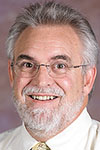Jeb Bladine: Banks add fraud warnings to cash withdrawals
Banking customers, of course, can withdraw small or large amounts of cash from their accounts. However, in today’s world fraught with fraud, banks have adopted new communications seeking to warn people of the potential financial consequences connected to unusual requests for cash.
Locally, First Federal has a “Withdrawal Alert” form that customers may be asked to read and sign before withdrawing unusual amounts of cash. It begins:
“Protect yourself from becoming a victim of fraud. Consumers lose millions of dollars each year to skilled fraudsters who are typically friendly, convincing, have honest faces and speak like authorities. Carefully read each of the following actual fraud scenarios.”
It’s a Top Ten of computer/phone/email/in-person fraud techniques in question form, asking if you:
Provided banking credentials to anyone to get a refund; were told you had won a lottery or sweepstakes and need to send money to get a larger prize or pay expenses; received a computer pop-up saying your bank accounts have been compromised; were pressured or threatened by anyone claiming to be law enforcement, IRS, Social Security; learned from someone met only online about a financial need due to some emergency.
And more:
Received a call claiming money was accidentally refunded into your account and requesting refund; were told by someone to give the bank some different reason for your cash withdrawal; received news that a family member is in trouble and needs an immediate wire of funds; received unexpected money as a check with request to wire funds back; were asked to purchase gift cards to pay for a debt, avoid arrest or avoid overpayment.
The First Fed form urges reassessment if any of those scenarios “resemble your situation.” Added warnings: “Only fraudsters demand confidentiality and instruct you to falsify information to the bank,” and “Government/law enforcement agencies will not request payment via cash, wire, gift cards, etc.”
In signing off, the person withdrawing funds acknowledges sole responsibility for any losses incurred by proceeding with the requested transaction. That, I suspect, stems from times when banking customers claimed liability to banks for allowing seemingly suspicious cash withdrawals.
Those situations, we know, are just a few of today’s multi-media scams.
Last year, for example, a cable-TV telephone fraud swept the country seeking credit card numbers from people to handle “needed” software upgrades to continue services.
The Federal Trade Commission reports that in 2024, consumers lost more than $12.7 billion to fraud. The FTC’s Top Ten fraud list includes imposters; online shopping and negative reviews; business and job opportunities; investment-related; internet services; prizes, sweepstakes and lotteries; telephone and mobile services; health care; travel, vacations and timeshare plans; and mortgage foreclosure relief and debt management.
Computer users should know about the potential for planted viruses to perform a total lock-down of computer data accompanied by demand for ransom money to regain access.
It’s easy to blame today’s technology, now aided by AI, for so many new fraud opportunities. But it actually is just the continuation of age-old human greed and dishonesty. Be careful out there.
Jeb Bladine can be reached at jbladine@newsregister.com or 503-687-1223.










Comments